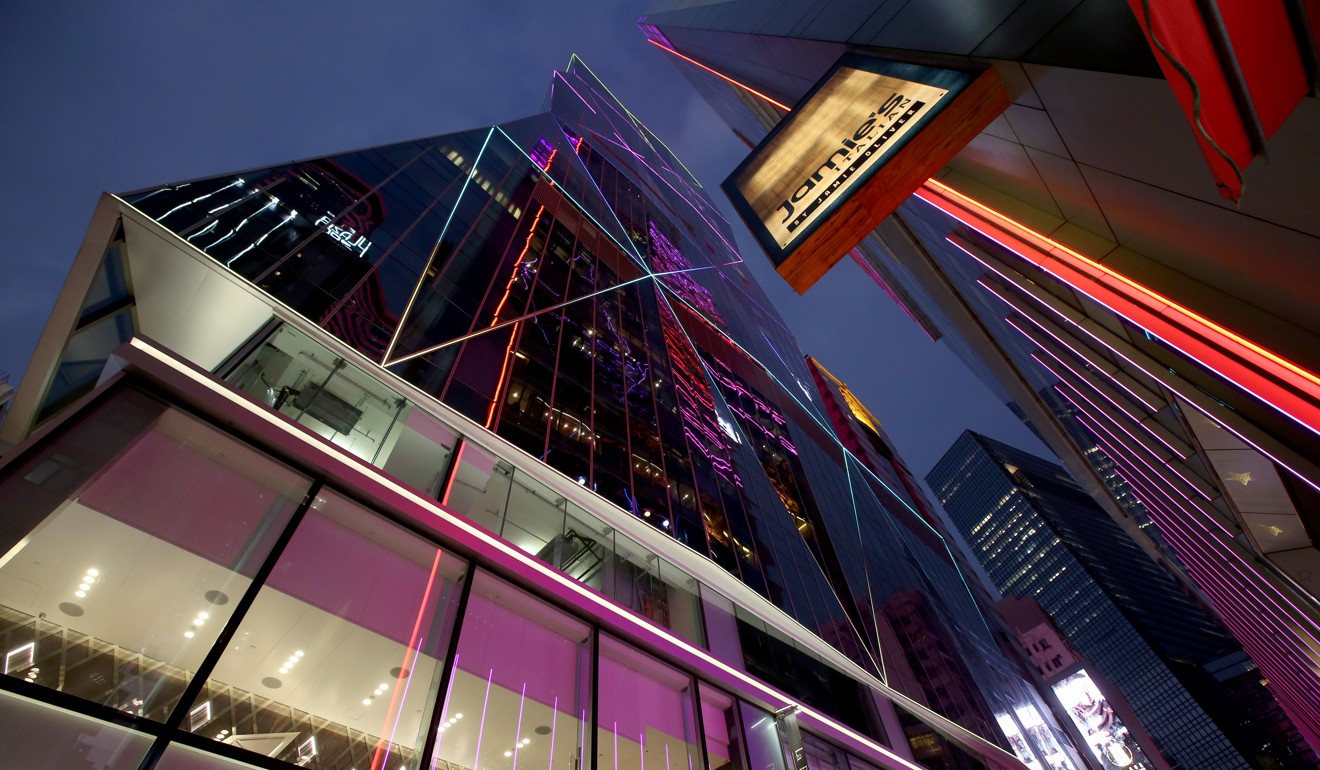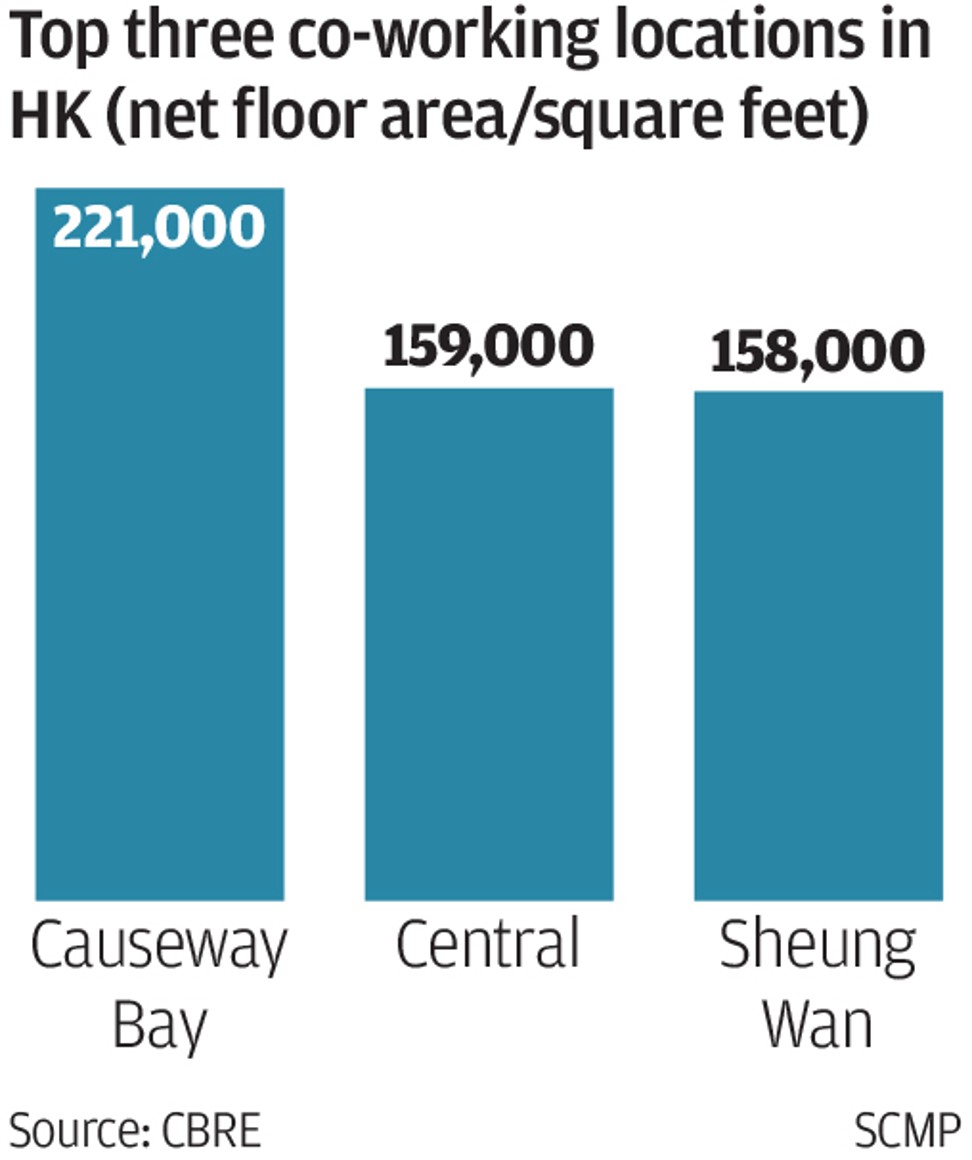
Causeway Bay set to become the heart of co-working space in Hong Kong
Campfire Collaborative Spaces will have 38,820 square feet of collaborative work space in V Point office tower when it opens in July
Causeway Bay is set to become the heart of co-working space in the city once Campfire Collaborative Spaces opens its 38,820 square feet of space in V Point office tower which will open in July next year.
Hong Kong-based Campfire has taken up nine floors in the grade A commercial building, which will also include fine dining restaurants and lifestyle concept stores.
CBRE said Causeway Bay, the second-most expensive retail strip in the world after New York’s Fifth Avenue, will have 220,900 square feet of co-working space or nearly a quarter of total supply in Hong Kong.
“It will be the largest co-working submarket,” said Dane Moodie, director of advisory and transaction services at CBRE in Hong Kong.
Central comes next with 159,000 square feet of collaborative work spaces followed by 158,000 square feet in Sheung Wan.

Supply of co-working space has increased 42 per cent to 983,000 square feet in the first 11 months of the year, with more than half or 499,000 square feet in grade A towers, according to figures from CBRE.
As grade A office rents continue to grow in Hong Kong, co-working space operators such as Campfire
provide reliable and flexible lease agreements that allow companies to maximise space and costs.
Shared spaces are no longer only appealing to start-ups, they’re becoming popular options for multinational corporates as well
“Co-working spaces allow companies to be more flexible when expanding or contracting their
operations, especially as the leasing term in co-working spaces can be much shorter than the
traditional three year terms offered by portfolio landlords,” said Moodie. “Shared spaces are no longer only appealing to start-ups, they’re becoming popular options for multinational corporates as well.”
CBRE’s Asia-Pacific Occupier Survey revealed that 64 per cent of multinationals plan to use some form of third party office space by 2020. Cost savings was cited as a driver, followed by leasing flexibility and collaboration.
Campfire, which its opened first co-working site in Kennedy Town in 2016, will have a portfolio of about 186,200 square feet once V Point opens. The other major operators in the segment include Regus, WeWork, Compass Offices and Naked Hub.
Campfire said it hopes to attract start-ups and fintech firms flocking to Causeway Bay.
“By securing this deal, it marks our arrival on the big stage with our latest flagship site in the heart of the city,” said Wang Tse, chief executive and co-founder of Campfire.
While Campfire’s Kennedy Town co-working space was geared towards tech start-ups, the second site
in Wong Chuk Hang, which opened early this year, caters to the fashion industry. It includes a fashion runway, a photography studio, a 3D printer and a fabric workshop. The company’s third collaborative work space, also in Wong Chuk Hang, opened in November. The media-focused site is equipped with a recording studio, an amphitheatre and a YouTuber room.
Campfire said it plans to open seven more sites around Hong Kong and two overseas by the middle of next year.



